That drugstore shampoo you use? It gets its suds from skin-irritating sulfates. The aluminum-free deodorant? It comes in a plastic container. The nozzle that spritzes your perfume? Not recyclable. Even the “clean” moisturizer or lipstick that boasts all-natural ingredients likely traveled more than 5,000 miles via carbon-spewing planes and trucks to get to your door.
The $400 billion global beauty industry has an ugly secret: It is harming our planet. Chemicals in sunscreen are damaging coral reefs and other marine life. Skincare products and lipsticks, which rely on ingredients like soy, palm oil, and sugarcane, contribute to the loss of 18 million acres of forest annually. The cosmetics industry produces 120 billion units of plastic packaging a year, according to data compiled by Zero Waste Week. (The Environmental Protection Agency says 70% of plastics end up in landfills.) Some personal care products are harming people, too, with cancer-causing chemicals such as formaldehyde and coal tar.
“I have been working in beauty for about 17 years, and I was part of the problem,” Shannon Goldberg, Cosmetics and Fragrance Marketing ’06, says. “I always say I was sleepwalking a little bit.”
Now Goldberg is one of several FIT alumni working to change the industry to something more, well, beautiful. In 2020, she founded Izzy Zero Waste Beauty, whose nontoxic mascaras, brow gels, highlighters, and lip glosses come in 100% recyclable, endlessly refillable containers.
“With all the information we’re armed with today—not just in terms of sustainability but in terms of the impact on our health—we need to do better,” Goldberg says.
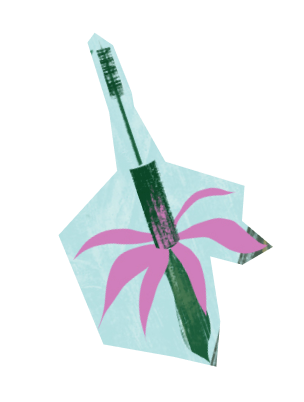
— Shannon Goldberg
Linda Treska, Cosmetics and Fragrance Marketing ’03, an adjunct instructor at FIT and founder of “waterless” makeup company Pinch of Colour, says sustainability—which she says encompasses not just the environment but also ethical labor and human-rights practices—is no longer a niche concern, but a requirement for many consumers.
“Nowadays, if you are going into the market, sustainability is almost a given,” Treska says, “You have to create sustainable products. Being socially responsible is important. Giving back is important. Creating products with an ethical value behind it is important. These are the things that I teach constantly in my classroom.”
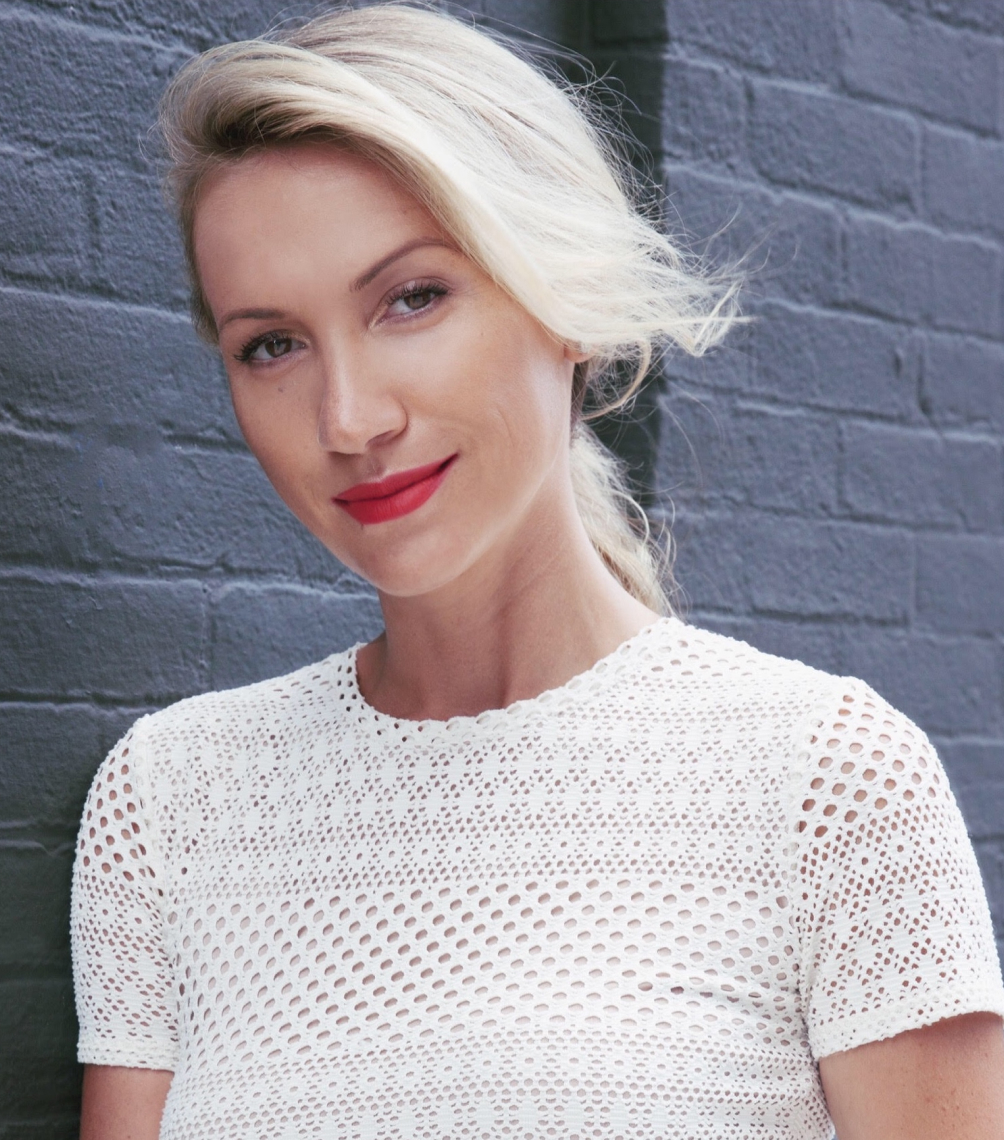
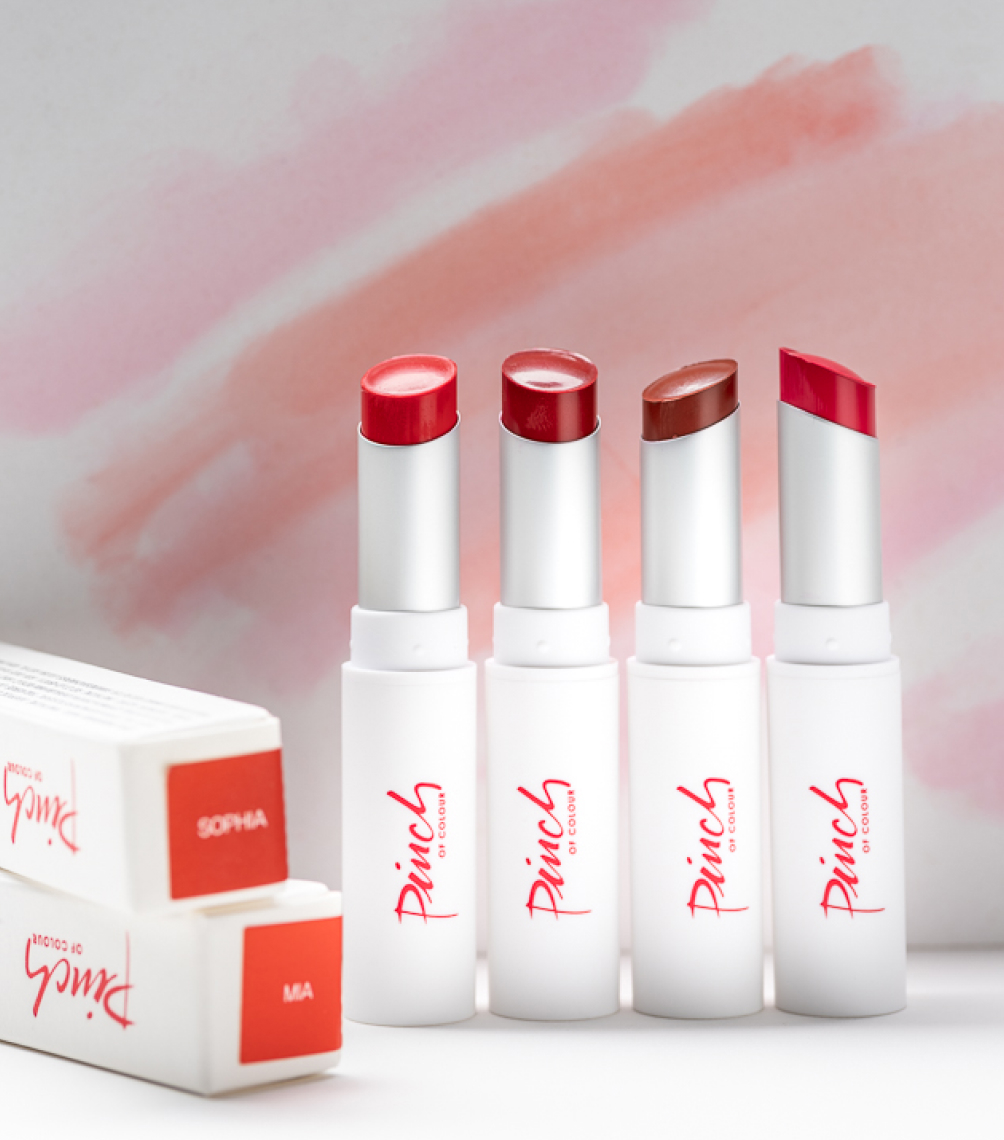
Virginia Bonofiglio, associate chair of Cosmetics and Fragrance Marketing, says sustainability is central to FIT’s beauty-focused programs.
“We do not have one course devoted to sustainability; the sustainability agenda is woven into every major core class,” from product development to packaging to marketing, she says. “It is the major topic of discussion across the beauty industry.”
Bonofiglio says such concerns are top of mind not just for new brands but also for conglomerates like Estée Lauder and L’Oréal. These large corporations “are very happy that we are becoming a hub for sustainability,” she notes, adding that several of her former students work in that area at these companies.
After all, she points out, sustainability is more than a trend: “It is a must-have and must-do if we expect to maintain life on this planet.”
A ZERO WASTE MASCARA
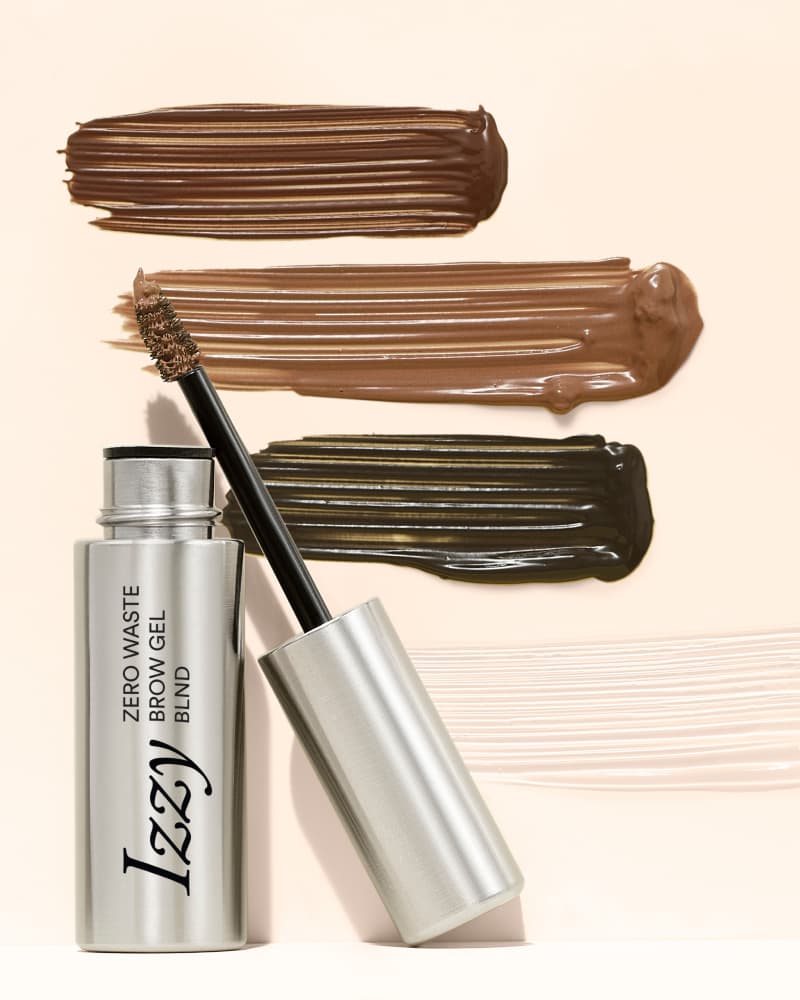
Shannon Goldberg used to love cool packaging. As someone who worked in marketing, she believed the way to stand out in the marketplace was through an aesthetically pleasing box or container, sometimes multiple boxes and containers.
In 2020, she launched Izzy, a cosmetics company that eliminated all that. Izzy’s signature mascara—made from jasmine and rice waxes—comes in a medical-grade stainless steel tube. Every three months, the customer sends it back in a reusable black cloth mailer to get it refilled. There are no labels, just QR codes. Every ingredient and packaging material is sourced from within a 400-mile radius: The brand’s entire supply chain is located in Connecticut, New York, and New Jersey.
“It’s truly zero waste,” she says.
Goldberg’s change of heart came at the beginning of the Covid lockdown in 2020 after she read a National Geographic article about waste in the beauty industry.
“I remember just seeing the numbers and spiraling and being like, ‘Oh my gosh: billions of single-use plastic containers and it just never goes anywhere.’” She wondered whether it was possible to make a brand that was truly sustainable. “Then I saw the term ‘zero waste’ being thrown around and got really curious,” she recalls.

Zero waste means that “absolutely nothing from your production goes to landfill or waterways,” Goldberg says—not the packaging, not the ingredients, not even anything used in the brand’s facilities. She found that even so-called “sustainable” brands often fell short. Most products come in containers made of PCR (post-consumer resin) plastics, which can be recycled only once before ending up in a landfill. The idea of cutting down trees to make paper or cardboard packaging also felt incredibly wasteful.
Goldberg came across medical-grade stainless steel, used by dentists and nail technicians, which can be washed and reused more than 10,000 times—and is fully recyclable. She decided to launch Izzy with mascara because many women had chosen to forgo lipstick while masking during the pandemic and because consumers are supposed to replace their mascara every three months to avoid eye infections. When the customer sends the reusable mailer back to Izzy, the tube is cleaned and refilled with fresh carbon-free product. (The plant-based resin wand is reground and remolded each time.)
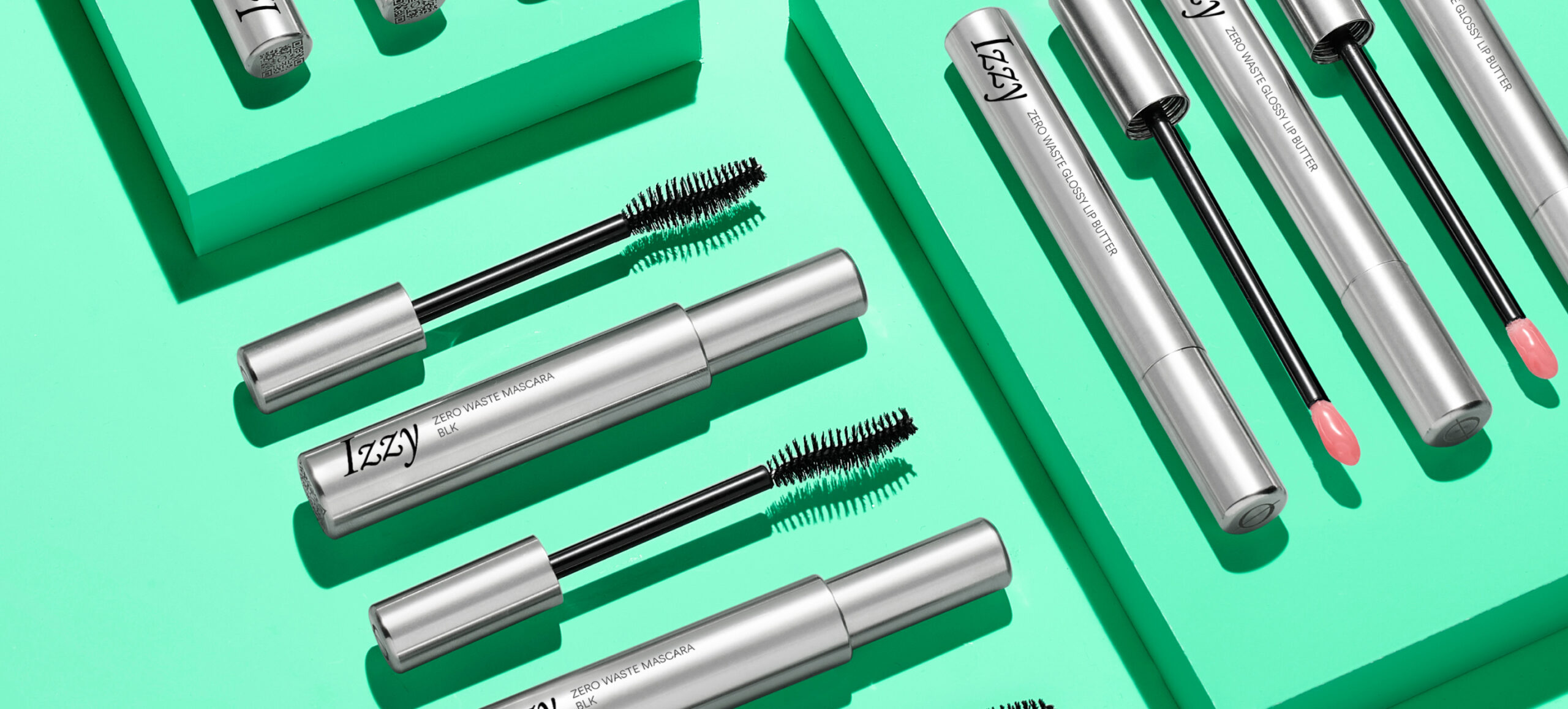
“I loved the business models of Rent the Runway and food-box delivery systems,” Goldberg says. “Izzy allows someone to do their sustainable good deed of the day without really trying.”
Currently, Izzy has 5,000 subscribers. Goldberg says the company averages 1,000 shipments per month.
Izzy has since expanded its product line to include brow gels, lip glosses, and highlighters. There’s also a moisturizer called Dew Bomb, which looks like a Tide Pod but dissolves in water to become a cream.
“I believe that one day zero waste will be the ultimate goal not only in beauty, but across categories like food as well,” she says.
SUSTAINABLY PACKAGED PERFUME
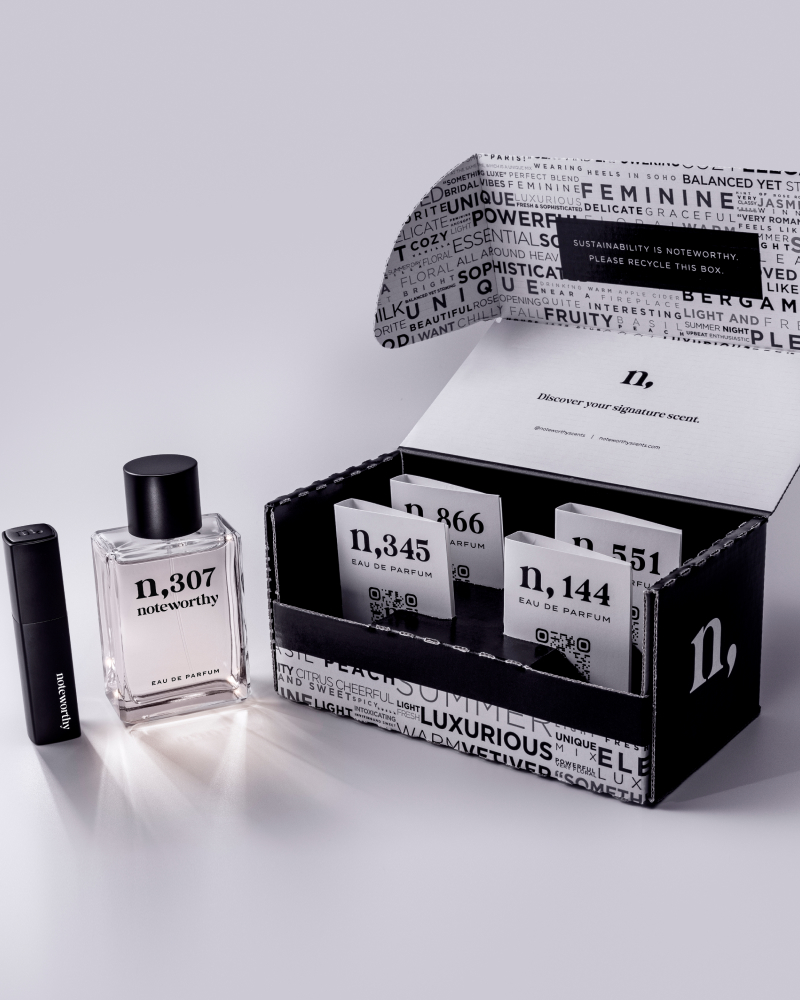
When Ashley Boyce, Cosmetics and Fragrance Marketing and Management ’13, started the data-driven fragrance brand Noteworthy, she paid special attention to reducing packaging waste.
Boyce had spent over a decade at Unilever helping launch new products and brands for the likes of Dove and Axe. She saw how augmented reality and AI had revolutionized shopping for skincare, hair care, and makeup, making it easier than ever to match the consumer with the right product. But when it came to fragrances, shoppers remained as lost as ever.
“It’s extremely overwhelming,” Boyce says. “You see these terms like ‘woody,’ ‘floral,’ ‘fruity,’ and most people don’t know what they even mean—let alone if they would like them combined together.”
That’s how Noteworthy came about. Over the course of 18 months, starting in 2021, she and cofounder Luke Weston (a friend and fellow beauty industry veteran) developed a bank of 14 fragrances, based on data about the most popular scents, that would appeal to a broad swath of people. Then they worked with a data scientist to create a fragrance finder online. Visitors answer a series of questions, and the algorithm puts together a personalized discovery kit with four scents tailored to their responses. Boyce says that 89% of customers find a perfume they love in the kit.

“No one else is doing this,” Boyce says. “There may be quizzes out there, but they don’t have the same root in science that ours does.”
The perfume industry also lagged behind the times in another aspect: sustainability.
“The majority of perfumes on the market, particularly anything above an ounce, have pumps on the bottle that you can’t remove without heavy-duty pliers,” Boyce says. “It took us a long time to find a vendor that sold both a beautiful bespoke bottle and a pump” that could easily be unscrewed for recycling purposes.
They also wanted to eliminate the excessive packaging used to ship perfume bottles. Instead of wrapping their bottles in cellophane, they use a lightweight sleeve made from recyclable, biodegradable tissue paper.
— Ashley Boyce
Noteworthy recently began offering refills, so customers don’t need to buy multiple bottles. “We are on a constant journey to figure out what else we can do to make our product more sustainable.”
Boyce adds, “For us, it’s really about minimizing the footprint that we leave on the planet, because we both have children. I don’t want to be more sustainable than another brand; I’d like us all to be sustainable.”
CLEAN FORMULAS
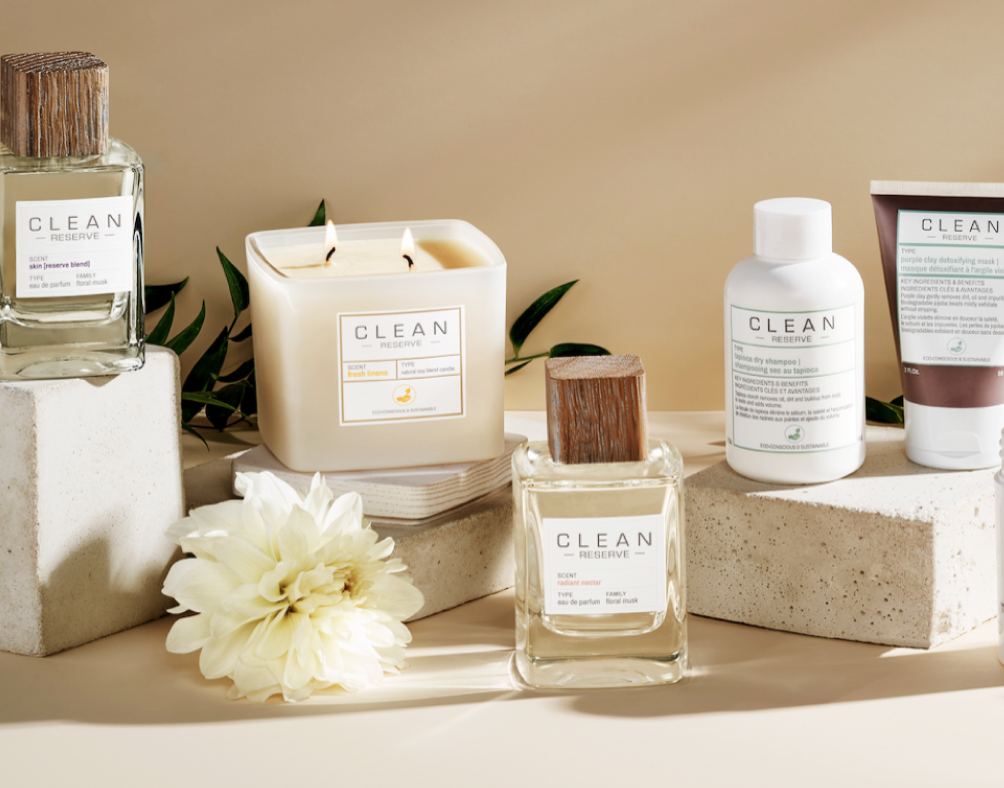
As a product developer, Tara Kearns, Cosmetics and Fragrance Marketing ’02, prides herself on keeping an eye on the future. She didn’t need a crystal ball to see how the world was heating up, and that the beauty industry needed to minimize the damage it inflicted on the Earth.
“At a certain point, it was time for the industry to have a better impact on the planet and consumers,” she says.
So in 2018, she joined the perfume company Clean Beauty Collective (CBC), as the head product and fragrance developer. CBC first gained recognition in 2003 with a fresh-smelling fragrance inspired by a bar of soap, called Clean. It was made without any parabens, phthalates, dyes, gluten, or toxins. Since then, the company has expanded into face, hair, and body products, with a focus on sustainability in sourcing and packaging.
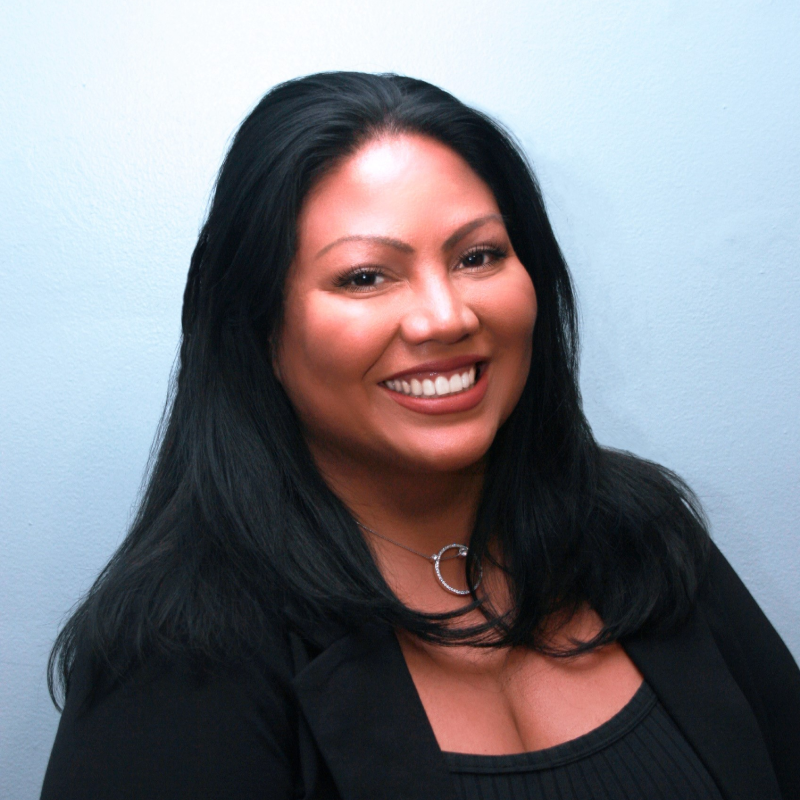
Kearns’ first task more than four years ago was expanding the company’s extensive list of banned ingredients—which include carcinogens, animal byproducts, palm oil, sulfates, talc, and many more—to help its developers create “products that are more thoughtful and green,” she says.
— Tara Kearns
CBC follows guidelines set by the European Union, which are much stricter than those in the U.S. “We have a reasoning behind every ingredient we don’t use. There’s transparency behind it, why we don’t want these ingredients in our products. We don’t fearmonger; that’s not what we want to do. But we want to give you synthetic and natural ingredients that work well together.”
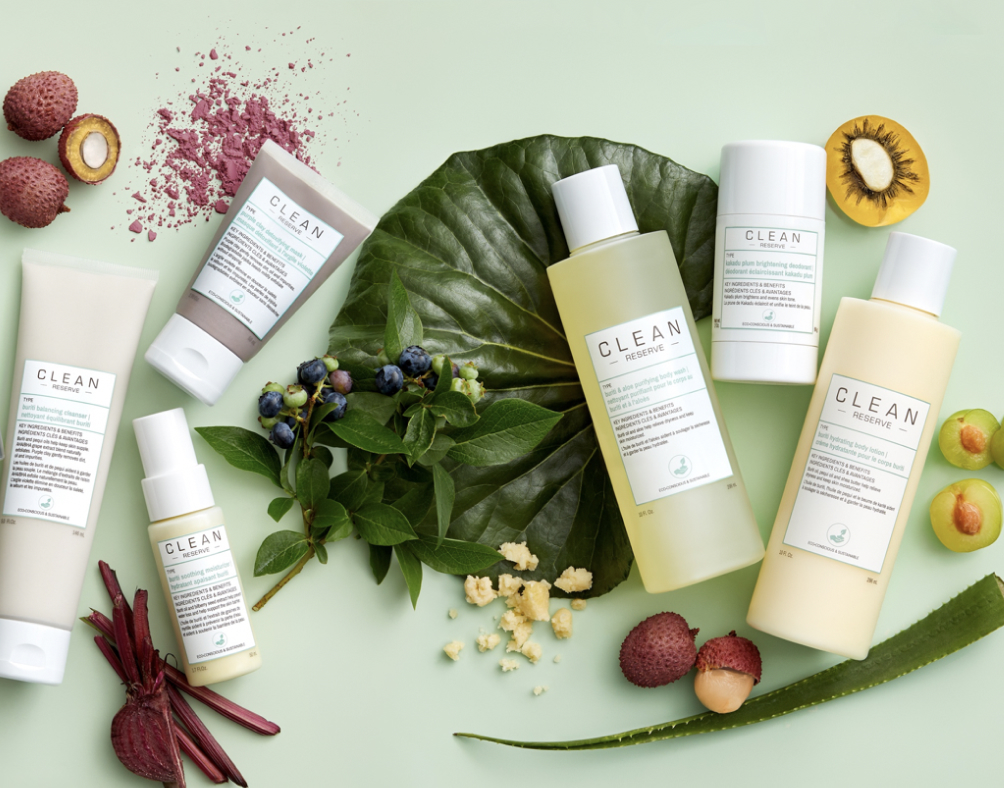
Kearns not only works on the ingredients but also the manufacturing and packaging, finding vendors and suppliers that adhere to CBC’s values. For example, the company uses corn-derived compostable cello for its packaging. The ink used in its branding is nontoxic and water based.
“The Earth takes care of us,” she says. “It gives us food and a beautiful place to live, and if we don’t take care of it, it won’t be around forever.”